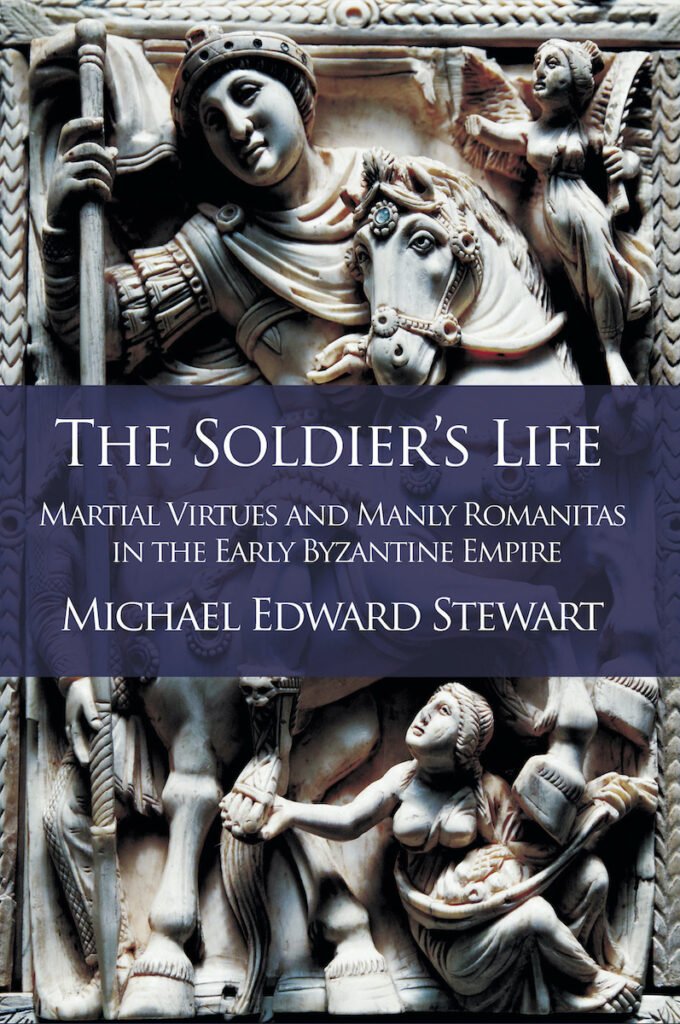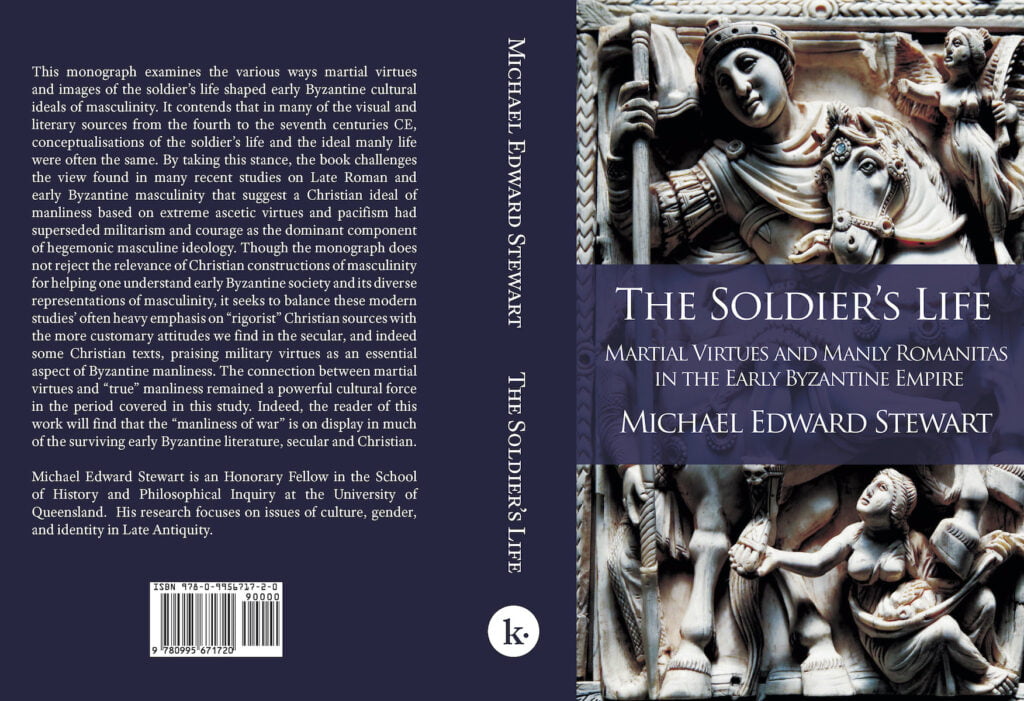Martial Virtues and Manly Romanitas in the Early Byzantine Empire
by Michael Edward Stewart
Michael Edward Stewart. The Soldier’s Life: Martial Virtues and Manly Romanitas in the Early Byzantine Empire. Romanitas 1. Leeds: Kısmet Press, 2016.

Title: The Soldier’s Life: Martial Virtues and Manly Romanitas in the Early Byzantine Empire
Author: Michael Edward Stewart
Series: Romanitas
Series number: 1
Place of publication: Leeds
Publisher: Kısmet Press
Date of publication: 2016
ISBN 978-0-9956717-2-0 (hbk)
ISBN 978-0-9956717-0-6 (pbk)
ISBN 978-0-9956717-1-3 (ebk)
xviii + 388 pages
229 x 152 mm
Copyright information
Copyright © 2016 Michael Edward Stewart.
Published by Kismet Press LLP under an exclusive license to publish. Commercial copying, hiring, lending is prohibited. The book is freely available online at kismet.press under a Creative Commons Attribution-NonCommercial-NoDerivatives 4.0 International (CC BY-NC-ND 4.0) license.
About the book
This monograph examines the various ways martial virtues and images of the soldier’s life shaped early Byzantine cultural ideals of masculinity. It contends that in many of the visual and literary sources from the fourth to the seventh centuries CE, conceptualisations of the soldier’s life and the ideal manly life were often the same. By taking this stance, the book challenges the view found in many recent studies on Late Roman and early Byzantine masculinity that suggest a Christian ideal of manliness based on extreme ascetic virtues and pacifism had superseded militarism and courage as the dominant component of hegemonic masculine ideology. Though the monograph does not reject the relevance of Christian constructions of masculinity for helping one understand early Byzantine society and its diverse representations of masculinity, it seeks to balance these modern studies’ often heavy emphasis on “rigorist” Christian sources with the more customary attitudes we find in the secular, and indeed some Christian texts, praising military virtues as an essential aspect of Byzantine manliness. The connection between martial virtues and “true” manliness remained a powerful cultural force in the period covered in this study. Indeed, the reader of this work will find that the “manliness of war” is on display in much of the surviving early Byzantine literature, secular and Christian.
About the author
Michael Edward Stewart is an honorary Fellow in the school of History and Philosophical Inquiry at the University of Queensland. His research focuses on issues of culture, gender, and identity in Late Antiquity. He has published a number of articles on these themes. His most recent paper, “The Danger of the Soft Life: Manly and Unmanly Romans in Procopius’ Gothic Wars” will appear in the Journal of Late Antiquity in 2017.
Table of contents
1. Introduction
2. The Study of Men as a Gender
3. Vita Militaris: The Soldier’s Life
4. The Manly Emperor: Conceptualisations of Manliness, Courage, and Ideal Leadership at the Opening of the Fifth Century
5. The Wars Most Peaceful: Militarism, Piety, and Constructions of Christian Manliness in the Theodosian Age
6. Representations of Power and Imperial Manliness in the Age of Theodosius II
7. Emperors and Generals: Pathways to Power in the Age of Leo I
8. Contests of Manly Virtue in Procopius’ Gothic War
9. Conclusion: Lingering Manly Romanitas in Byzantium
Ways to support, or how to purchase this book
All publications by Kısmet Press are and always will be free to read online. If you would like to support us, you can purchase our books in print and electronic forms from most online bookstores. You can also order our print publications from your local independent bookshop. Since we use a print-on-demand system, occasionally our printed publications may be listed as “temporarily unavailable” or “out of stock”, but this is almost always misleading. Please feel free to get in touch with us if you experience problems in purchasing our publications. Here are our our suggestions for online platforms for purchases:
*When you make a purchase using these links Kısmet Press may earn a small commission, which also helps us. This does not affect the price that you pay for any of our publications.

